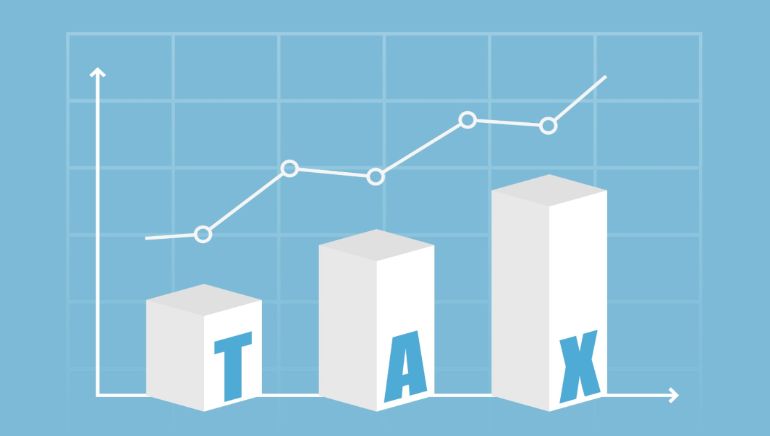
Georgia has been tightening its gambling industry regulations following its relentless bid to be part of the European Union. The nation’s Prime Minister recently announced that the government will increase its gambling business tax to 15% from 10%.
Georgia’s government is moving to increase tax rates as part of its overall plan to address the surging gambling turnover in the Eastern European country. Georgia’s Prime Minister, Irakli Gharibashvili, announced this decision a week ago while delivering the country’s budget speech.
According to the nation’s Prime Minister, the reported ‘catastrophic’ levels of gambling in the country are the reason that led to the new seemingly anti-gambling initiative. PM Gharibashvili announced that the country’s current 10% taxation rate will be upped to 15%. Also, the PM proposed adding more tax to gambling withdrawals, from the current 2% to as much as 5%. Eastern European countries are expected to implement the tax raises by 2024.
Moreover, the government also issued a warning of upcoming stricter gambling regulations. Given that Georgia is actively seeking EU membership, new, more stringent gambling industry measures are set to be implemented to fulfill its previously unveiled ‘12-point conditions.’ How the country’s administration sees it, the tighter regulations will ensure that its gambling industry laws are per EU conditions.
Initiative Expected to Generate More Money for the Budget
Georgia’s latest move to increase its gambling business tax is expected to bring in more money to be channeled towards the country’s budget. According to the PM, the amendment to the current rates is expected to rake in an additional GEL 400 million (~$147 million) annually. At the same time, the PM also mentioned that an extra 300 million GEL (~$110 million) is projected to be received from banks. Based on the government’s calculations, the grand total of 700 million GEL (~$257.8 million) will be a sufficient additional income for the country in that period.
While the prospect of bringing in additional revenue for the country seems nice, the PM also expressed dissatisfaction with the fast rate at which gambling grows. In his budget speech, PM Gharibashvili stated that the sector turnover grew from GEL 48 billion (~$17.8 billion) to a staggering GEL 52 billion (~$19.3 billion), which the PM described as catastrophic. The head of state had this to say on the matter:
I want to express surprise; on the one hand, on the other hand, it is very sad that the turnover of the gaming business is increasing. I am really not happy; too many citizens are still involved in the gaming business…You know that we made important changes last year when we banned advertising and also restricted our citizens from participating in the gambling business. Despite this, we see that quite a few citizens are involved in it. Accordingly, we have made a decision to increase additional taxes on this business, and, as we told you, GEL400M will be collected in addition.
Based on the speech, the government’s move represents a multifaceted approach to tackling the gambling situation in the country. With the increased burden of taxes on the operators and the implementation of higher taxes on withdrawals, the government is looking to kill two birds with one stone. That said, it remains to be seen how the prevailing higher tax rates will affect the Georgian gaming landscape and whether the industry’s growth rate will be affected moving forward.
In a statement seemingly against the tax rise, the country’s Gaming national trade body, the Georgian Gambling Association (GGA), defended the gambling sector. The association cited that licensed operators were facing challenges adapting to the new regulations, which has led to an increase in illegal sites targeting Georgian consumers since 2021. The GGA urges the government to work with Georgian-based businesses to implement effective standards that will protect its nationwide consumers.
Georgia’s Regulatory Changes to Gambling
As the PM pointed out in his speech, the government isn’t pleased with the prevalent numbers related to gambling in the country. Mind you, a new gambling law was enforced in February. They included a gambling license fee of €1.6 m, which many industry insiders considered a little bit excessive for the country.
Nonetheless, according to PM Gharibashvili, the country’s latest gambling reforms are aimed at fighting the gambling ills that affect the country and have impacted the country’s population in recent years. Moreover, according to the Georgian government, the reforms mainly focus on protecting the country’s younger demographic, the most vulnerable population segment.
The Eastern European country’s recent regulatory reform wave is the largest since 2021. At that time, legislators attempted to control the gambling landscape amid overriding fears within the government that the country would have developed into a land-based gambling hub. As such, the Georgian parliament had voted to raise the minimal gambling age to 25, raise gambling taxes by 70%, ban gambling TV adverts, and bar public employees as well as the self-excluded from participating in gambling.
Additionally, the new rules earlier in February also limited online casinos to operations tied to land-based venues. Thus, under the new guidelines, the country’s existing ten land-based casino businesses, including bigwigs like Casino Adjara, Crystalbet, and Iveria, can hold an online casino license. On the same note, online slots will only be limited to retail sports parlors, with sports betting limited to physical bookmakers.
The recent enforcement of rules by Georgia makes it one of the strictest countries in Europe regarding the gambling scene. It remains to be seen how the general population will receive these rules after they are implemented next year.